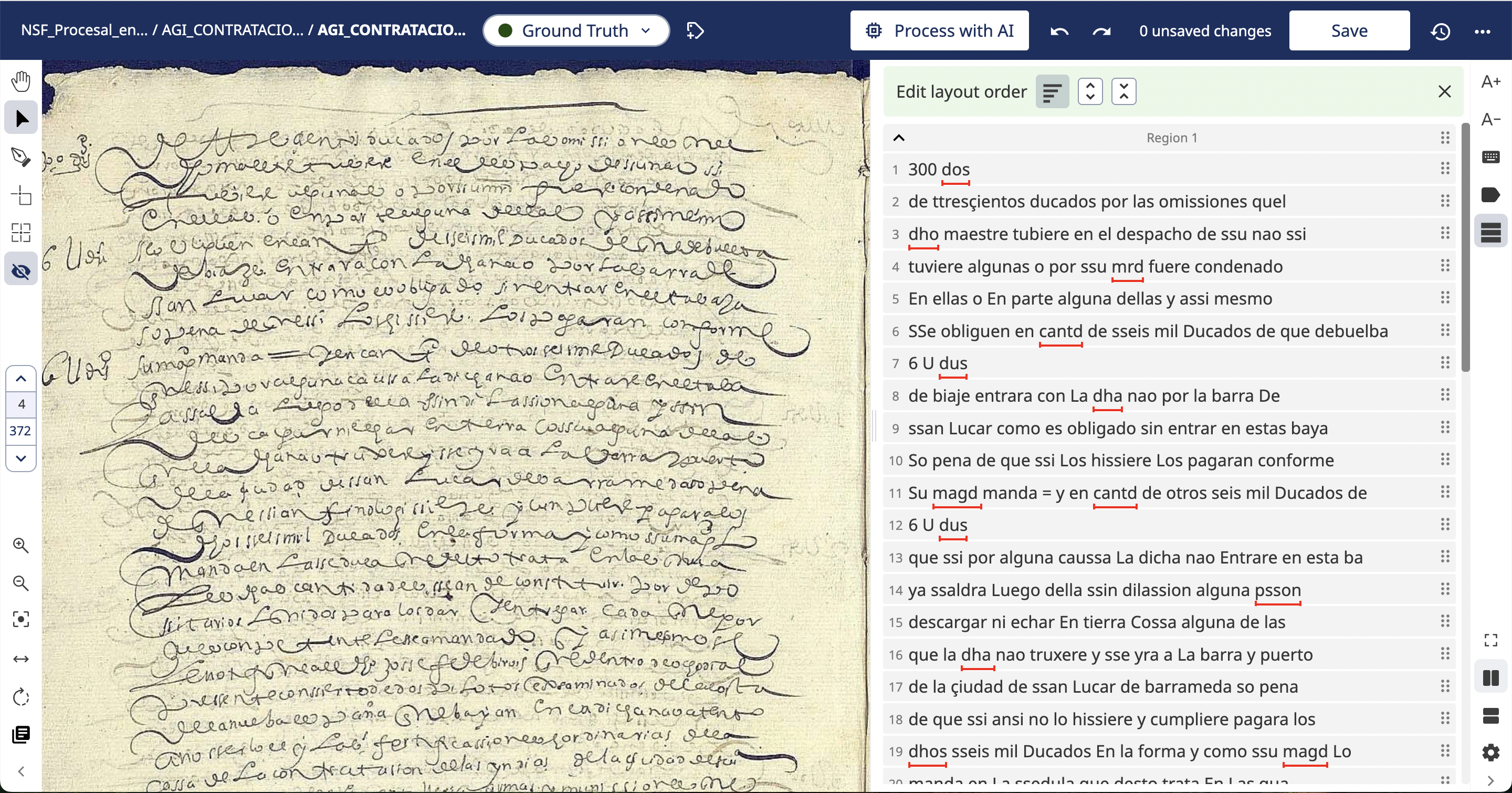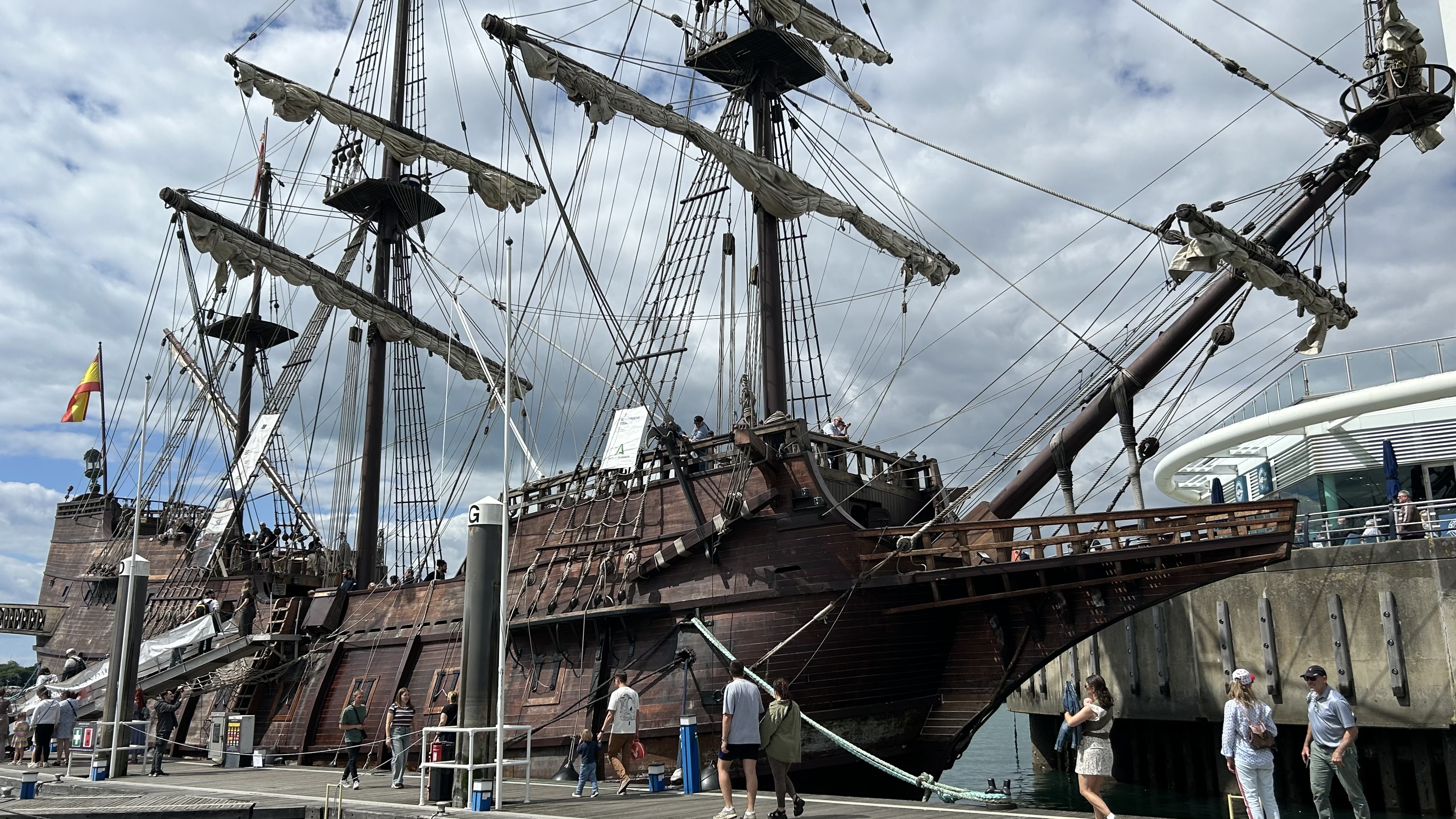New Spain Fleets - AI-Driven Colonial History
Applying Artificial Intelligence to three centuries of socioeconomic colonial history through advanced manuscript analysis
As Research Collaborator with Lancaster University’s New Spain Fleets project led by Professor Patricia Murrieta-Flores since May 2024, I contribute expertise in Spanish paleography, digital humanities, and Colonial Latin American history to this cutting-edge initiative that applies Artificial Intelligence methods to analyze two centuries of colonial documentation.


Project Scope and Innovation
This interdisciplinary project combines advanced AI technologies with traditional paleographic expertise to unlock previously inaccessible historical data from Spanish colonial archives. The initiative focuses on fleet documentation spanning three centuries, providing unprecedented insights into colonial socioeconomic networks, trade patterns, and social structures.
Technical Methodologies
Handwritten Text Recognition (HTR): Using Transkribus platform to develop specialized models for Spanish colonial scripts, enabling automated transcription of thousands of previously untranscribed documents.
Natural Language Processing: Advanced text analysis to identify patterns in colonial terminology, trade relationships, and bureaucratic language evolution across three centuries.
Corpus Linguistics: Systematic analysis of linguistic patterns that reveal social hierarchies, economic relationships, and cultural exchanges in colonial contexts.
Machine Learning Integration: Training algorithms to recognize specific document types, administrative categories, and recurring formulaic language in colonial bureaucracy.
Research Focus Areas
Indigenous Enslavement Documentation: Applying AI analysis to identify references to Indigenous forced labor within fleet records, contributing to broader understanding of colonial slavery systems.
Economic Network Mapping: Using computational methods to trace trade relationships, cargo manifests, and financial transactions across the Atlantic world.
Social Hierarchy Analysis: Examining titles, occupations, and social markers in colonial documentation to understand class structures and mobility patterns.
Temporal Language Evolution: Tracking changes in administrative language, legal terminology, and social categories across three centuries of colonial rule.
Collaborative Framework
Working within an international research team from Mexico, UK, Spain and Portugal that includes:
- AI specialists developing HTR models
- Colonial historians providing contextual expertise
- Linguist and specialist of Nahuatl
- Digital humanities researchers designing analytical frameworks
- Archivists ensuring ethical access to historical materials
Preliminary Findings
Early analysis has revealed:
- Previously Unknown Networks: AI identification of trade relationships not visible through traditional archival methods
- Enhanced Efficiency: HTR models achieving 95%+ accuracy rates on trained document types
- Hidden Patterns: Computational analysis revealing cyclical patterns in colonial administrative practices
- Cross-Reference Capabilities: Automated identification of recurring names, places, and relationships across thousands of documents
Technical Infrastructure
- Platform: Transkribus HTR with custom Spanish colonial models
- Data Processing: Python-based analysis pipelines for text processing
- Visualization: Network analysis tools for relationship mapping
- Storage: Secure cloud-based systems for sensitive archival materials
-
Quality Control: Human expert verification of AI transcriptions
- Project Website: New Spain Fleets Lancaster University
- Paper: Publication of the HTR outcomes
This collaboration demonstrates how AI technologies can accelerate historical research while maintaining scholarly rigor and ethical standards. By combining computational power with paleographic expertise, the project opens new possibilities for understanding colonial societies at unprecedented scale and granularity. The methodologies developed have applications beyond colonial Spanish America, offering models for AI-assisted historical research in other linguistic and temporal contexts.